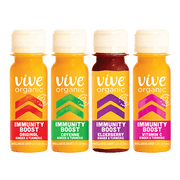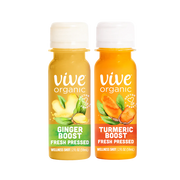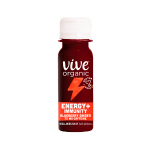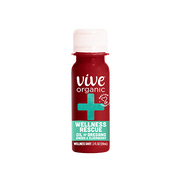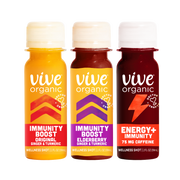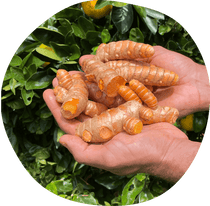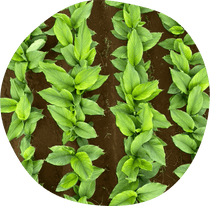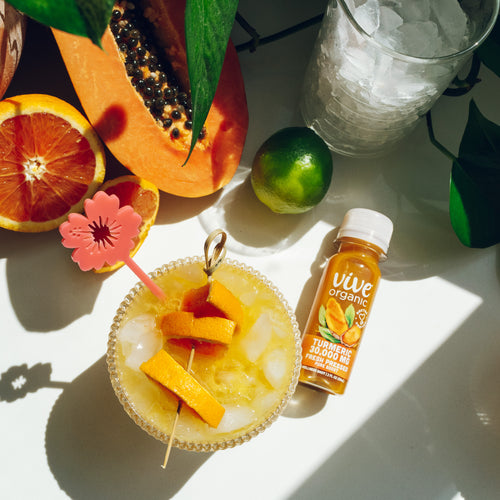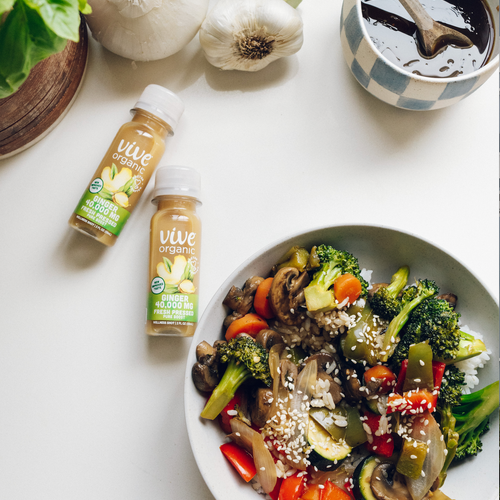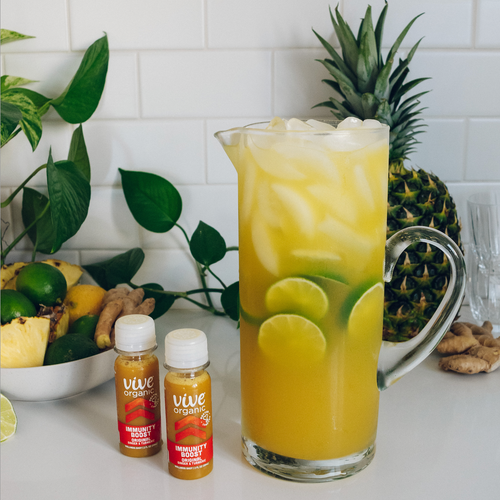If you are thinking of ‘going green’, then you most likely have an affinity for looking for ways to improve your overall health and well-being. Eating green, with a focus on plating up more plant-based foods and being mindful of sustainable practices, can help to adopt a green lifestyle.
In this blog, we focus on why becoming more mindful consumers is important for our own health and for the future health of our planet. We guide you through 10 meaningful ways you can consider going green.
Going Green: What Does It Mean?
Going green may have a different significance for you than it does for someone else. What is important to you and what you want to do to help the world around you may be part of your decision to go green. However, for the majority of people, going green means becoming aware of and changing your behaviors to help you make a difference in decreasing your environmental effects.
Health Benefits of a Green Diet
A green, plant-based diet is rich in whole fruits, vegetables, whole grains, seeds, and plant-based proteins like legumes and nuts. Studies show that these foods are packed with essential vitamins, minerals, phytonutrients, and antioxidants.1
Also, important to keep in mind is that part of a healthy way of eating is keeping ultra-processed foods out of your cart. In general, ultra-processed foods are low in important nutrients like vitamins, minerals, and dietary fiber. Many are high in calories, have sugars, trans fats, and sodium added to them.2, 3, 4
Studies reveal that there is a strong link tying ultra-processed foods to poor diet quality and chronic diseases.4
Sustainability
According to the U.S. National Environmental Policy Act of 1969 (NEPA), the goal of sustainability, is to, “create and maintain conditions, under which humans and nature can exist in productive harmony, that permit fulfilling the social, economic, and other requirements of present and future generations.”5
It’s encompassing three main pillars that are all intertwined and affect each other, therefore sustainability looks to protect our planet now and in the future.1
Our Impact On the Environment
Here at Vive Organic, we’re proud of who we are and what we do! We are passionate about you, our employees, and our planet.
Our mission is to champion health, pure and simple, and taking care of our planet is an essential part of that. We work to protect the earth in every step of the Vive production process.6
So to give you a closer look at our commitment to good health and our communities, let’s take a look at some of the ways we are supporting sustainability and a healthful way of life.
Regenerative and Organic
We have an awesome relationship and cherish working with our organic and regenerative farmers. Our farmers care about everything that goes into the process and the food they produce because they’re mindful about creating balance in their agricultural ecosystem.
Also, all of our farms are certified 100% organic and non-GMO, which means there aren’t any chemicals used to produce your food, which means they are not adding chemicals to the soil or air.6
Eco-Friendly Packaging
We know that our 2-ounce bottles are the perfect size to deliver our nutrient-rich, organic wellness shots, but they’re also completely recyclable along with our cases. In fact, we saved:
- 468,015 pounds of plastic from hitting landfills.
- 19,298,952 two-ounce bottles.
- 236,295 pounds of virgin corrugate.
Pretty impressive, right? Well, we are continually looking at ways we can improve our processes and product packaging to reduce our carbon footprint and plastic flow into the environment.
10 Ways To Go Green
- Follow your heart: First and foremost if you are passionate about making a difference in this beautiful world and decreasing the carbon footprint, then committing to going green is key.
- Eat more plants: Consider feeding your family fewer meat-based meals per week. Incorporate more plant-based meals into your diet. Think color by adding more fruits and vegetables to meals, as snacks, and for foods on the go.
- Choose whole, clean foods: Ditch the ultra-processed foods and keep healthy options on hand. If you prep them and let the family know that they are available in the fridge, the more likely they will choose the healthier option.
- Support local farms: Opt for locally grown and seasonal produce.
- Reduce Waste: Plan your meals in advance to reduce food waste. Instead of throwing away leftover vegetables or fruits, try tossing them in a salad or juicing them.
- Go organic: Organic foods are grown without chemicals such as pesticides, insecticides, and fertilizers. This makes organic foods a cleaner, green choice.
- Reduce plastic-based products: Begin by drinking water or your favorite beverage from glass cups (rather than plastic cups). Instead of 'buying' your coffee in a disposable cup, use a thermos for your hot or cold beverages for work or on the road.
- Produce doesn’t have to be “perfect”: Just because a fruit or vegetable looks a little wonky and may not be perfectly symmetrical it doesn’t mean that it’s lacking in the nutrient department. In fact, here at Vive Organic, we love all fruits and find the beauty on both the inside and outside. We use 100% juice ugly fruits that don’t belong in the garbage can!
- Start composting: Save your fruit and vegetable peels, eggshells, and coffee grinds since adding them to your soil can offer a nutrient-rich environment for your plants. The raked leaves and other yard clippings may also benefit your flower beds by giving warmth and protection throughout the colder months. Composting lowers your carbon footprint and eliminates the need for chemical fertilizers.7
- Plant a garden: In addition to being more affordable, growing your herbs and vegetables might be a healthier way to consume green foods. Consider sharing your harvested goods with your neighbors, which can develop fantastic friendships and expand your food options.
Takeaway
Going green can help you live a healthier lifestyle while also benefiting the environment. We recommend that you make gradual changes and enjoy the journey to a healthier, more sustainable way of living.
As always, we recommend that you consult with your healthcare provider to determine which diet, supplementation, or support would be best for your specific health needs.
For more information on our sustainability efforts please visit our sustainability mission.
Disclaimer: This blog contains promotional content about our products. The information provided in this blog is for educational and informational purposes only and should not be construed as medical advice. While the nutritional information and health tips shared here are based on published studies and expert insights, they should not replace advice and treatment from a healthcare professional. Always consult a qualified healthcare provider with any questions you may have regarding a medical condition or health objectives.
References
- “Plant-Based Diets for the Whole Family.” Www.todaysdietitian.com, www.todaysdietitian.com/newarchives/1015p28.shtml. Accessed 20 November 2024.
- Understanding Food Marketing Terms. www.eatright.org/health/wellness/nutrition-panels-and-food-labels/understanding-food-marketing-terms. Accessed 20 November 2024.
- Harguth, Anne, RD. “What You Should Know About Processed, Ultra-Processed Foods.” Mayo Clinic Health System, 25 July 2024, www.mayoclinichealthsystem.org/hometown-health/speaking-of-health/processed-foods-what-you-should-know. Accessed 20 November 2024.
- Lane, Melissa M., et al. “Ultra-processed Food Exposure and Adverse Health Outcomes: Umbrella Review of Epidemiological Meta-analyses.” BMJ, Feb. 2024, p. e077310. https://doi.org/10.1136/bmj-2023-077310
- www.epa.gov/sites/default/files/2015-05/documents/sustainability_primer_v9.pdf. https://www.epa.gov/sites/default/files/2015-05/documents/sustainability_primer_v9.pdf
- “Sustainability.” Vive Organic. viveorganic.com/pages/sustainability https://viveorganic.com/pages/sustainability. Accessed 20 November 2024.
- Nature's Path. “A Complete Guide to Composting.” Nature’s Path, 30 May 2017, https://naturespath.com/blogs/posts/a-complete-guide-to-composting?msclkid=504ec6c623e11b34ef5fa19546aee48e&utm_source=bing&utm_medium=cpc&utm_campaign=USA+-+Nov+2024+Sales-Performance+Max-1&utm_term=naturespath.com&utm_content=Organic. Accessed 20 November 2024.
